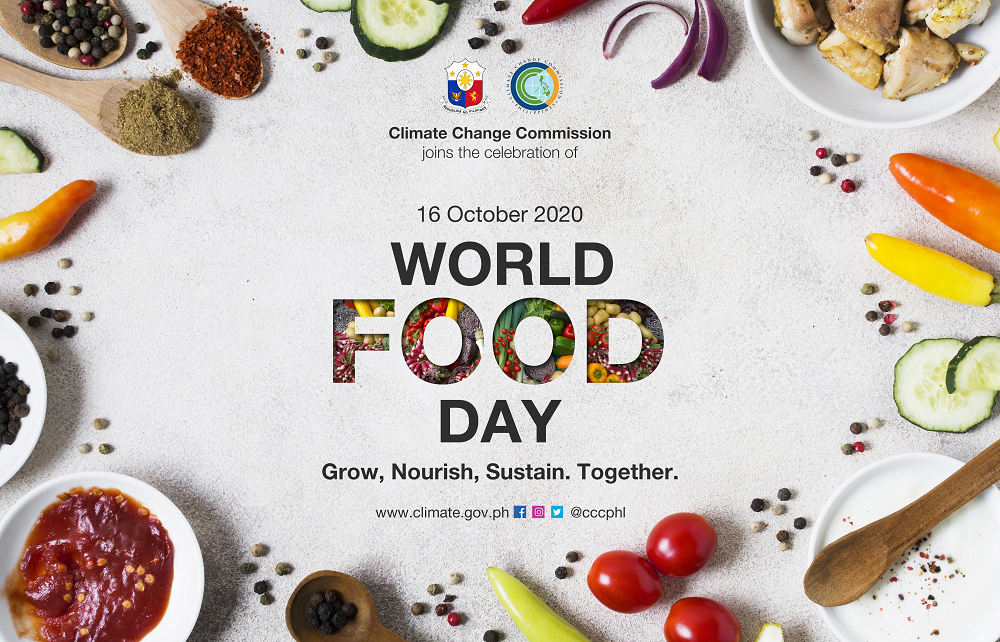
October 15, 2020 Thursday

MANILA, 16 October 2020 — In celebration of World Food Day, the Climate Change Commission (CCC) reiterates the call to improve food systems by adopting innovative solutions make it more resistant to economic shocks brought by the COVID-19 pandemic.
World Food Day (WFD), celebrated every year around the world on 16 October in honor of the date of the founding of the Food and Agriculture Organization of the United Nations (FAO) in 1945, tackles global hunger and strives to eradicate hunger across the world. It also aims to bring awareness on the important global issues such as poverty, conflict and climate change that impact the world’s food supply and distribution.
According to FAO, “in recent decades, the world has made significant progress in improving agricultural productivity. Yet, the food systems are still out of balance. Hunger, obesity, environmental degradation, loss of agro-biological diversity, food loss and waste, and a lack of security for food chain workers are only some of the issues that underline this imbalance… This year’s celebration marks the 75th anniversary of FAO in an exceptional moment as countries around the world deal with the widespread effects of the global COVID-19 pandemic… National and local governments, private sector, and civil society need to make sure that food systems grow a variety of food to nourish a growing population and sustain the planet, together.”
The FAO found that nearly 690 million people are hungry, up 10 million since 2019. The COVID-19 pandemic could add between 83 to 132 million people to this number, depending on the economic growth scenario.
The CCC said that preserving access to safe and nutritious food is and will continue to be an essential part of the response to the COVID-19 pandemic, particularly for poor and vulnerable communities, who are hit hardest by the pandemic and resulting economic shocks. It cited the “Plant, Plant, Plant” and the Adaptation and Mitigation Initiatives in Agriculture (AMIA) programs of the Department of Agriculture, which promote integrated farming systems in addition to the adoption of other climate change adaptation measures, and have shown positive impacts to communities during the pandemic.
Examples of AMIA village interventions include a greenhouse for vegetable seedling production, mechanical harvester for rice, automatic artificial incubator for chicken eggs, and rotavator, being utilized to generate income and to adapt to climate change. AMIA villages also source additional income from vegetable gardens as well as from livestock while waiting for their main crop to mature or during lull in fishing. Instead of burning agricultural wastes such as rice straw and banana leaves they utilized them as substrates for mushroom production and/ or feed to the vermi worms in organic fertilizer production. The AMIA program is coordinated by the DA-Climate Resilient Agriculture Office (CRAO).
The climate body stressed that the government should scale up these good practices to ensure food supply and that farmers and workers in the agriculture sector remain thriving amid the pandemic.
The agency also stressed that the public must consider growing food at home and in community-run gardens o “gulayan sa barangay” to ensure a steady supply of safe and nutritious food even in this challenging time.